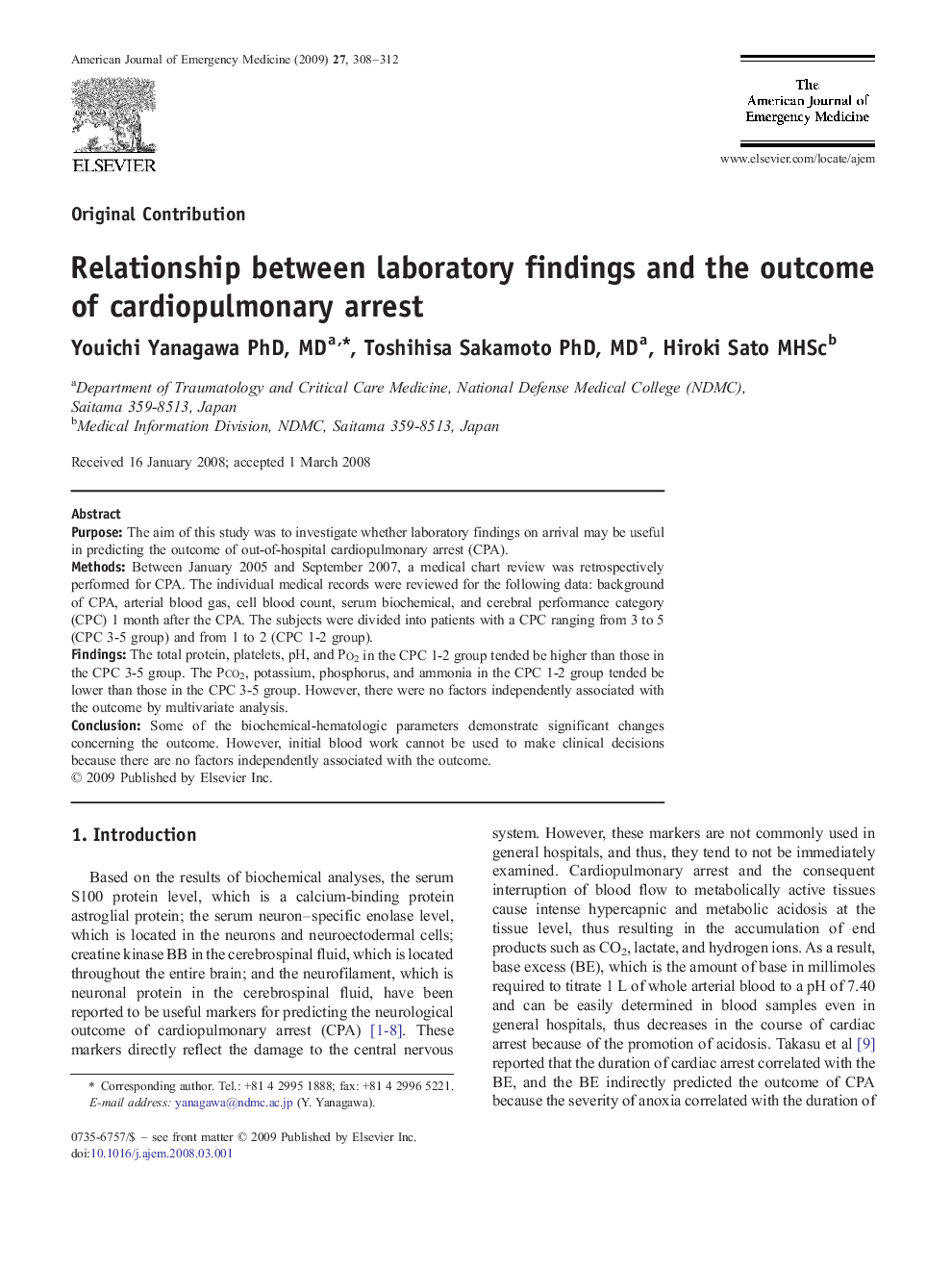| Article ID | Journal | Published Year | Pages | File Type |
|---|---|---|---|---|
| 3226660 | The American Journal of Emergency Medicine | 2009 | 5 Pages |
PurposeThe aim of this study was to investigate whether laboratory findings on arrival may be useful in predicting the outcome of out-of-hospital cardiopulmonary arrest (CPA).MethodsBetween January 2005 and September 2007, a medical chart review was retrospectively performed for CPA. The individual medical records were reviewed for the following data: background of CPA, arterial blood gas, cell blood count, serum biochemical, and cerebral performance category (CPC) 1 month after the CPA. The subjects were divided into patients with a CPC ranging from 3 to 5 (CPC 3-5 group) and from 1 to 2 (CPC 1-2 group).FindingsThe total protein, platelets, pH, and Po2 in the CPC 1-2 group tended be higher than those in the CPC 3-5 group. The Pco2, potassium, phosphorus, and ammonia in the CPC 1-2 group tended be lower than those in the CPC 3-5 group. However, there were no factors independently associated with the outcome by multivariate analysis.ConclusionSome of the biochemical-hematologic parameters demonstrate significant changes concerning the outcome. However, initial blood work cannot be used to make clinical decisions because there are no factors independently associated with the outcome.
